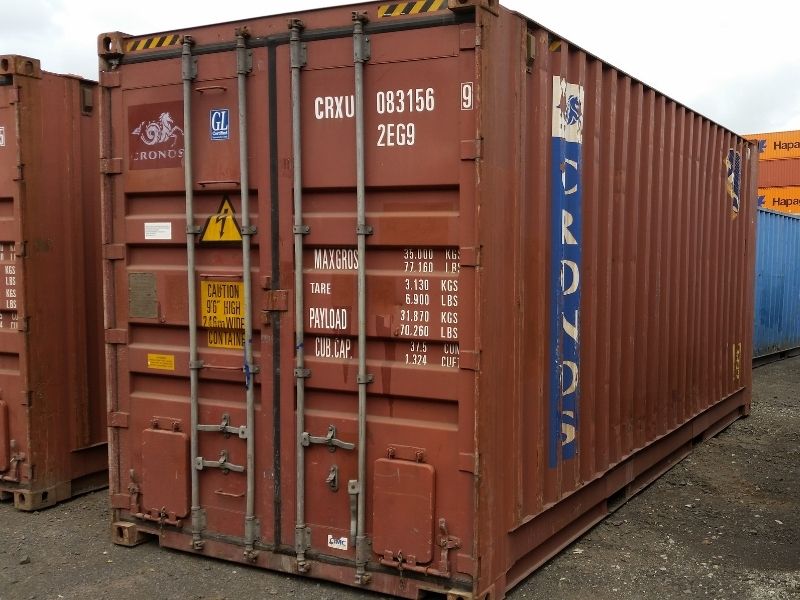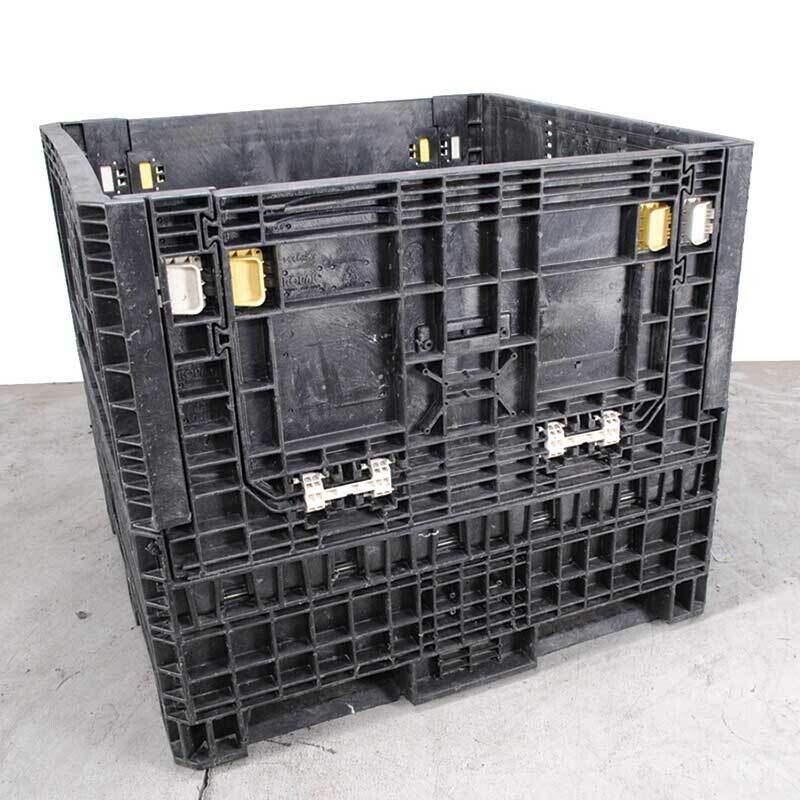Exactly How Mass Containers Can Improve Efficiency in Your Packaging Operations
Bulk containers play a necessary role in maximizing product packaging operations. Their design makes it possible for much better usage of vertical room and promotes organized inventory monitoring. This effectiveness leads to minimized product replenishment frequency and reduced labor costs. Furthermore, the resilience of these containers lessens product damage. As companies seek ways to boost their processes, comprehending the multifaceted advantages of mass containers becomes crucial. What other benefits might they offer the table?
Streamlined Storage Space Solutions
As firms look for to maximize their operations, structured storage remedies have ended up being crucial for improving product packaging effectiveness. Efficient storage not just saves area yet also facilitates quicker access to products, which is essential in busy manufacturing settings. Mass containers, designed for easy piling and organization, considerably minimize the complexity of storage space systems. They allow businesses to optimize upright room while reducing the footprint needed for inventory.
Additionally, these containers often include ergonomic designs that simplify handling and transport, reducing the danger of injury and enhancing process. By combining materials wholesale containers, firms can lower the regularity of restocking and simplify their supply chain processes. In general, the application of effective storage remedies cultivates an extra well organized work space, bring about boosted performance and decreased operational costs. With thoughtful layout and strategic usage of mass containers, businesses can achieve significant improvements in their packaging procedures.

Waste Decrease and Sustainability
While the search of effectiveness commonly drives product packaging decisions, waste reduction and sustainability have become essential factors to consider in modern-day procedures. Companies increasingly identify that taking on bulk containers can substantially minimize product waste. These containers often utilize less packaging material than conventional techniques, leading to a smaller carbon impact.
Moreover, mass containers can be reused numerous times, which additionally decreases the need for single-use product packaging and lowers overall waste getting in land fills. Their design typically permits less complicated recycling procedures, lining up with sustainability goals.
Additionally, firms that prioritize waste reduction can improve their brand name reputation, interesting ecologically mindful consumers. By implementing mass containers, organizations not just improve procedures yet likewise contribute favorably to environmental stewardship. This double advantage of functional efficiency and sustainability placements business favorably in an open market progressively concentrated on environment-friendly methods.
Enhanced Production Line Efficiency

Carrying out mass containers on production line greatly enhances efficiency by streamlining the handling and transportation of products. By using bulk containers, makers can reduce the regularity of product replenishment, allowing employees to concentrate on setting up tasks instead of constant stock management. This causes less interruptions and a smoother process, eventually boosting efficiency.
In addition, bulk containers are developed for simple assimilation with automated systems, even more enhancing the setting up process. Their standardized sizes and shapes assist in far better company, allowing employees to situate and accessibility products rapidly. This decrease in search time adds to a more fluid production atmosphere.

Cost Cost Savings and Boosted Profit Margins
Notable expense financial savings can be recognized via the adoption of bulk containers in product packaging processes. By decreasing the need for several smaller sized bundles, firms can decrease material prices notably. Bulk containers usually require much less packaging product in general, leading to reduced expenses on products. In addition, the performance of mass handling minimizes labor costs connected with packaging and unpacking, even more boosting savings.
Fewer trips to vendors and reduced transportation expenses are likewise key advantages, as bulk check here containers enable raised product ability per delivery. This higher volume not just minimizes shipping expenditures but additionally optimizes storage area within centers, causing enhanced inventory management.
The toughness of bulk containers commonly equates to lower damages rates throughout handling and transport, maintaining product honesty and minimizing waste. Collectively, these aspects contribute to enhanced earnings margins, making bulk containers a financially helpful option for organizations looking for performance in their packaging operations.
Versatility Throughout Industries
Bulk containers supply exceptional adaptability throughout different sectors, making them a useful possession beyond simply cost savings. In the food and drink field, these containers help with the secure transport and storage space of huge amounts of components, improving efficiency in assembly line. In pharmaceuticals, bulk containers ensure compliance with rigid hygiene requirements while suiting the bulk handling of basic materials. The chemical industry also advantages, as these containers endure extreme substances and stop contamination, sustaining safe operations. used collapsible containers. Furthermore, the agricultural market utilizes mass containers for transporting grains and fertilizers, minimizing and optimizing logistics waste. Their adaptability includes manufacturing, where bulk containers streamline assembly processes and lower the need for extreme packaging. This cross-industry capability not just boosts operational efficiency but likewise promotes sustainability via decreased product packaging waste, illustrating the important role bulk containers play in modern-day supply chains
Regularly Asked Inquiries
How Do Mass Containers Effect Staff Member Safety And Security in Packaging Workflow?
Mass containers significantly improve employee security in product packaging operations by minimizing manual handling, decreasing injury threats, and advertising ergonomic techniques. Their style assists in much safer transport and storage space, inevitably producing a more safe and secure work setting for all workers.
What Products Are Bulk Containers Generally Made From?
Mass containers are usually made from durable materials such as high-density polyethylene, polypropylene, metal, or wood - used bulk containers. These products supply stamina, resistance to environmental variables, and viability for different components, guaranteeing reliable and risk-free transportation of goods
Can Mass Containers Be Customized for Particular Products?
Yes, bulk containers can be tailored for specific products. Makers typically tailor measurements, materials, and includes to satisfy distinct needs, guaranteeing suitable defense and efficiency during storage and transport of various products.
Exactly How Do Mass Containers Affect Transport Logistics?
Bulk containers enhance transportation logistics by making best use of cargo room, decreasing the number of trips required, and decreasing handling prices (used collapsible bulk containers). Their standardized measurements promote effective loading and discharging, eventually causing improved operational effectiveness throughout the supply chain
What Is the Life-span of Mass Containers in Routine Use?
The lifespan of bulk containers in routine use usually ranges from five to 10 years, depending upon material top quality, handling methods, and ecological conditions. Correct upkeep can significantly prolong their use and efficiency.
Implementing mass containers on setting up lines substantially boosts effectiveness by improving the handling and transport of materials. Mass containers usually need less packaging product generally, resulting in reduced expenses on products. In drugs, mass containers ensure compliance with strict hygiene standards while fitting the bulk handling of raw materials. Their flexibility prolongs to production, where mass containers streamline setting up processes and reduce the requirement for too much product packaging. Mass containers greatly enhance worker security in product packaging operations by minimizing manual handling, lessening injury risks, and promoting ergonomic practices.